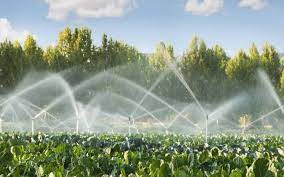
Vision
That the land and water program at the Faculty of Agriculture, Ain Shams University, become of competitive value locally and regionally, keeping pace with the requirements of the labor market in the field of land, water, and desert agriculture, effective in achieving sustainable development.
Mission
Emanating from the vision and mission of the Faculty and the university, the Land and Water Program at the Faculty of Agriculture, Ain Shams University seeks to prepare a distinguished graduate who is scientifically qualified, skilled, and behavioral, with innovative thinking, capable of competing in the labor market, solving its problems, conducting research, serving and developing society in accordance with global developments.
The program aims to prepare and qualify students by providing them with many skills that meet the needs of the labor market, and therefore must be able to:
1. Familiarize himself with the skills that qualify him to meet the needs of the labor market in the fields of land, water, and desert crops, while preserving the environment and biodiversity. He is aware of the role of the agricultural engineer in society.
2. Get acquainted with the legal, ethical and social aspects, and realize the most important economic problems in the field of agriculture and ways to solve them
3. Manage agricultural resources and facilities well and use scientific foundations and appropriate technology to inventory and divide lands and address technical and economic problems in the field of agriculture.
4. Uses geographic information systems (GIS), remote sensing techniques, and GPS positioning devices in planning and reviewing agricultural exploitation patterns in agricultural projects.
5. Uses the best agricultural systems in the case of low-quality water resources and the best appropriate biotechnology methods to overcome the problems of soil fertility and plant nutrition.
6. Evaluate the characteristics of soil and water, identify patterns and their use under different environmental conditions, and propose plans to solve problems related to soil, water, and plants.
7. Participate in the management of land reclamation and cultivation projects and environmental resources for land and water resources, demonstrate the ability to develop its performance, qualify the student to compete in the labor market, and enroll in postgraduate programs and work in the field of scientific research.
8. Familiarize yourself with the characteristics of desert environments and their natural resources, and work to cultivate them and make sustainable use of them.
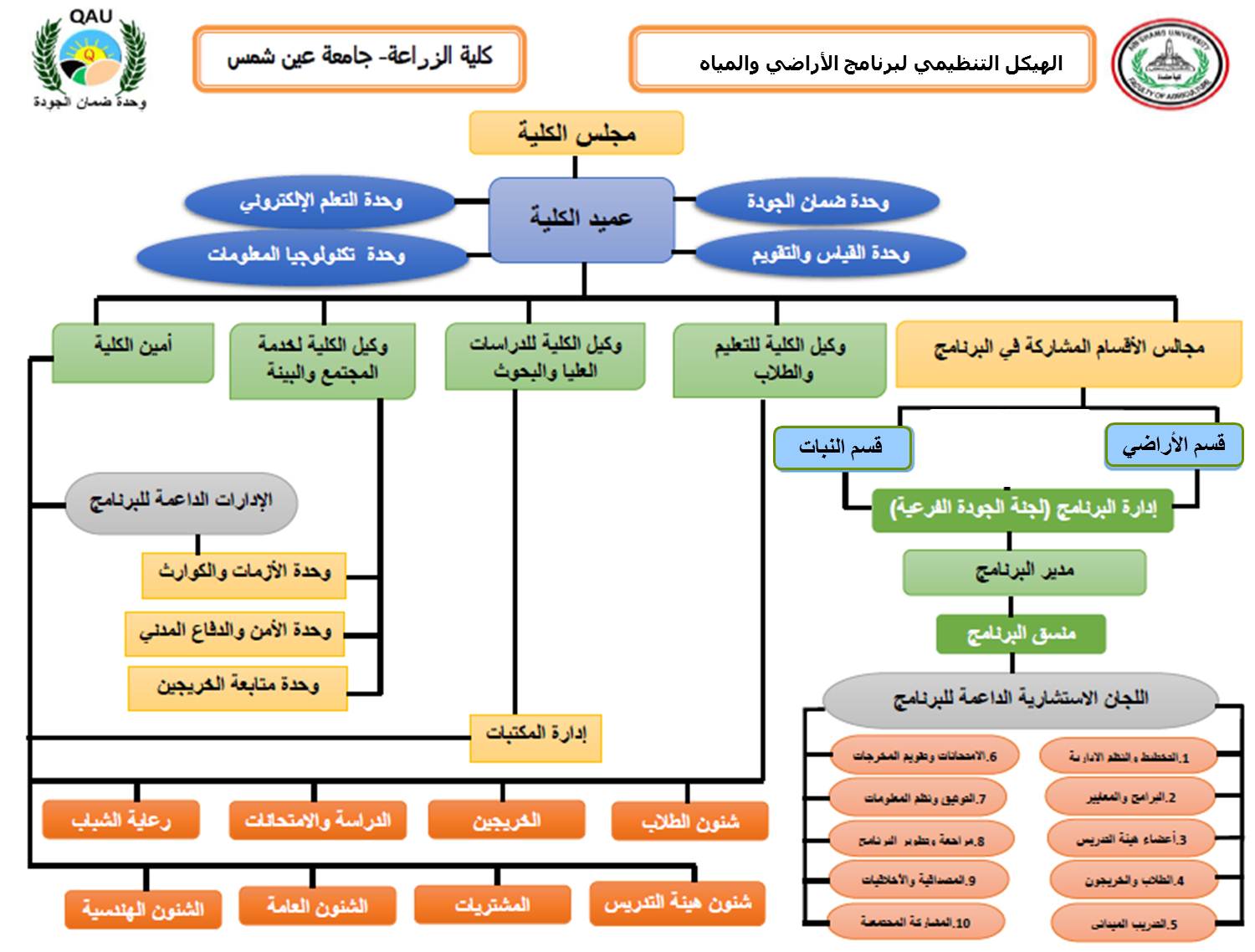
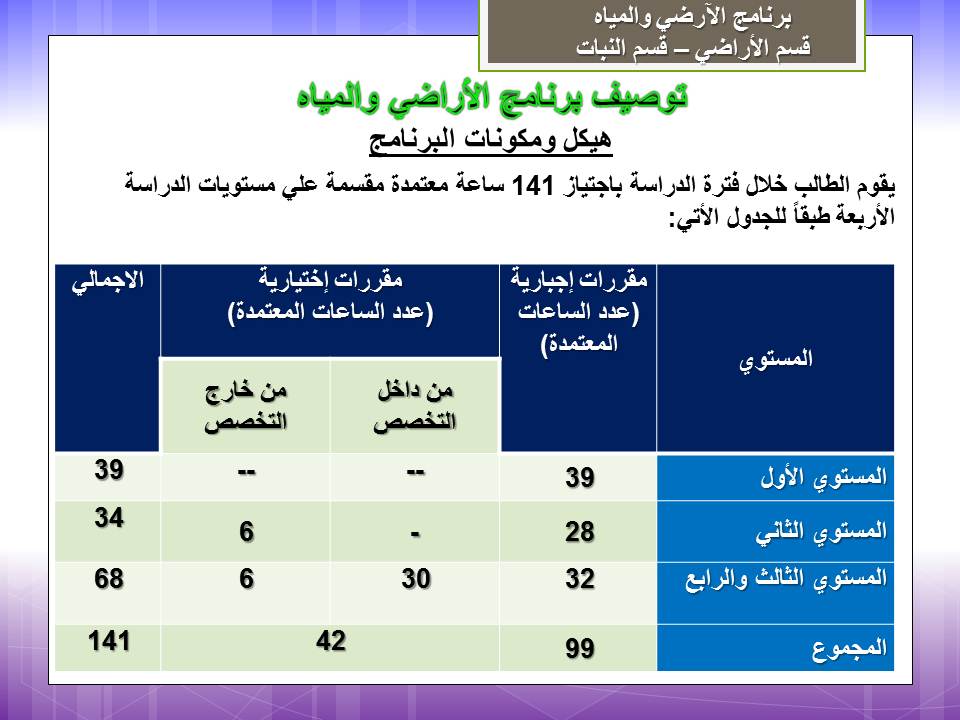
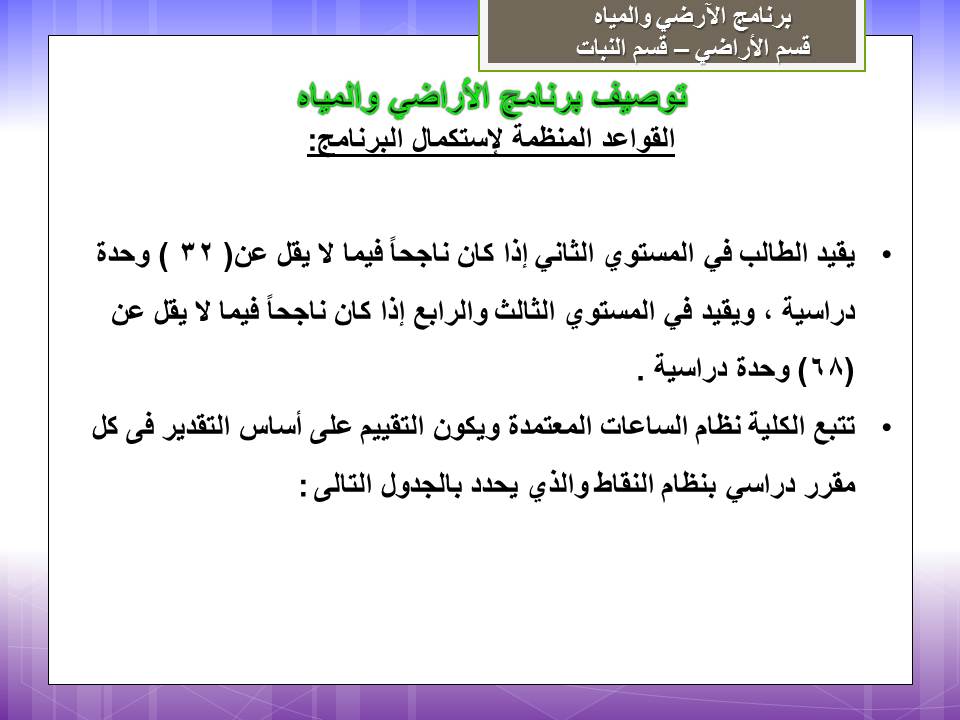
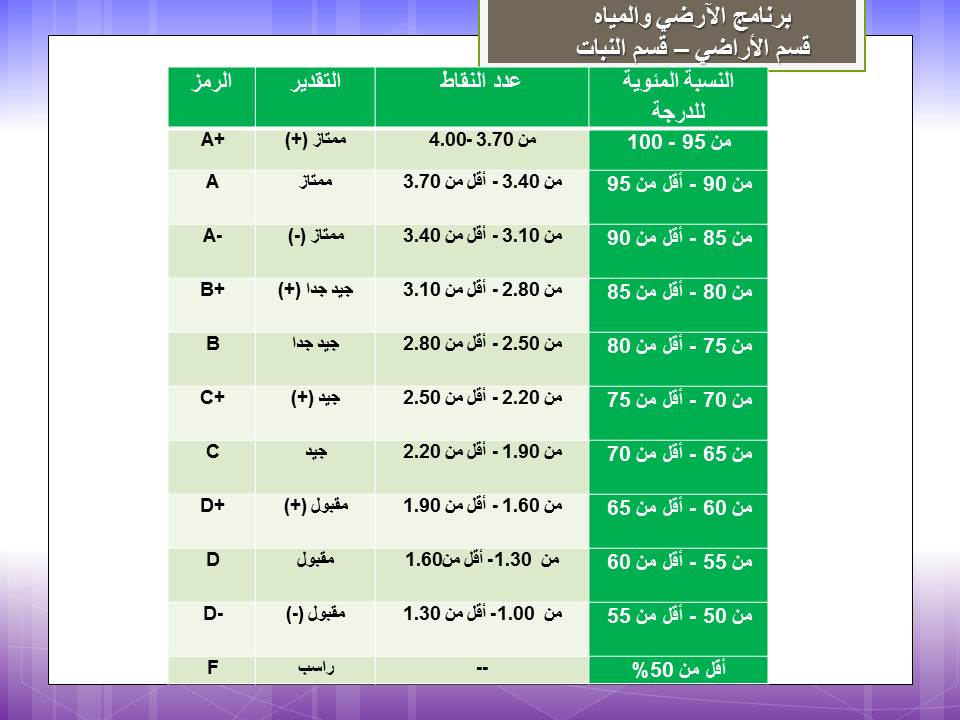
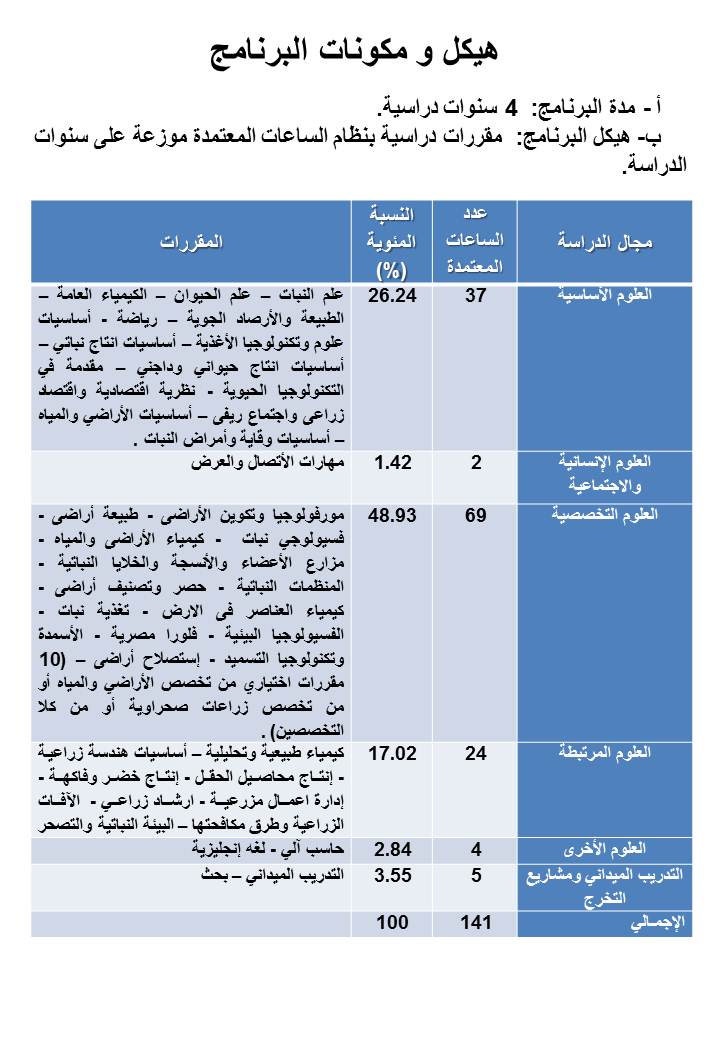
Specifications of a graduate of the Soil and Water Program
In addition to the general specifications for graduates of the faculties of agriculture, a graduate of the Soil and Water Program should be able to:
1. Evaluate the properties of soil and water, specifically the appropriate agricultural use patterns under different environmental conditions
2. Preserves soil from deterioration and water from pollution for a clean environment and sustainable agriculture
3. Use the appropriate scientific and technological bases to enumerate and divide the lands and determine the patterns of their use
4. Participates in the management of reclamation and land cultivation projects
5. Participate in the management of water resources and work to rationalize their use
6. Familiar with the basic skills in the field of crop production in desert areas
7. Familiarize yourself with the specifications of desert environments and their natural resources, and work to improve their properties and make sustainable use of them.
Knowledge and understanding:
In addition to the general understanding and knowledge of the graduate of the faculties of agriculture, the graduate of the Land and Water Program should be able to:
1. It discusses the theories of the origin and formation of lands and determines their properties
2. Understand the relationship between soil, water, and plants
3. Learn about the general characteristics of agricultural lands and soils and the factors affecting their fertility
4. Learn the basics of land reclamation and cultivation
5. Understand the basics of plant nutrition and the use of fertilizers
6. Determine the water needs of agricultural crops
7. Learn about the management of irrigation systems and field drainage
8. Learn the basics of mechanization in land reclamation and cultivation
9. Learn the basics and practices of soil conservation, marginal land use and low-quality water
10. Learn the basics of using modern technologies in preparing soil maps and the patterns of their use
11. Explain the basic characteristics of plants and agricultural practices in desert areas
12. Understand the nature of the desert environment, its natural resources, and the means of safe production of agricultural crops
Mental skills:
In addition to the general mental skills that a graduate of the faculties of agriculture must acquire, a graduate of the Land and Water Program must be able to:
1. Classify lands according to the international land classification system
2. Choose the appropriate programs for reclamation in the light of technical studies
3. Analyze the causes of soil and water pollution and determine ways to remove the causes of pollution
4. Choose appropriate and alternative methods for managing land and water resources
5. Proposing appropriate fertilization, irrigation and drainage programs based on the crop, soil and surrounding environment
6. Develop plans to preserve and cultivate endemic and newly developed economic desert plant species
Professional skills:
In addition to the general professional skills that a graduate of the faculties of agriculture must acquire, a graduate of the Land and Water Program must be able to:
1. Analyze soil, plant, water and fertilizer
2. Diagnose the symptoms of nutrient deficiency on crops and agricultural crops
3. Apply different fertilization systems
4. Use modern technologies in the field of land reclamation and cultivation
5. Implement land reclamation programs
6. Use low quality water for cultivating lands
7. Propose systems for managing water resources and works to rationalize the use of water
8. Apply irrigation schedules according to the used irrigation system
9. Use appropriate agricultural equipment in land reclamation and cultivation programmes
10. Cultivate under different production and environmental systems with the application of the principles of sustainable agriculture and practices that are safe for the environment
11. Apply methods of improving crop yield and quality under desert farming conditions
12. Select stress-tolerant plants in the desert environment
General and transitional skills:
The same skills as for graduates of agricultural faculties


.svg)
